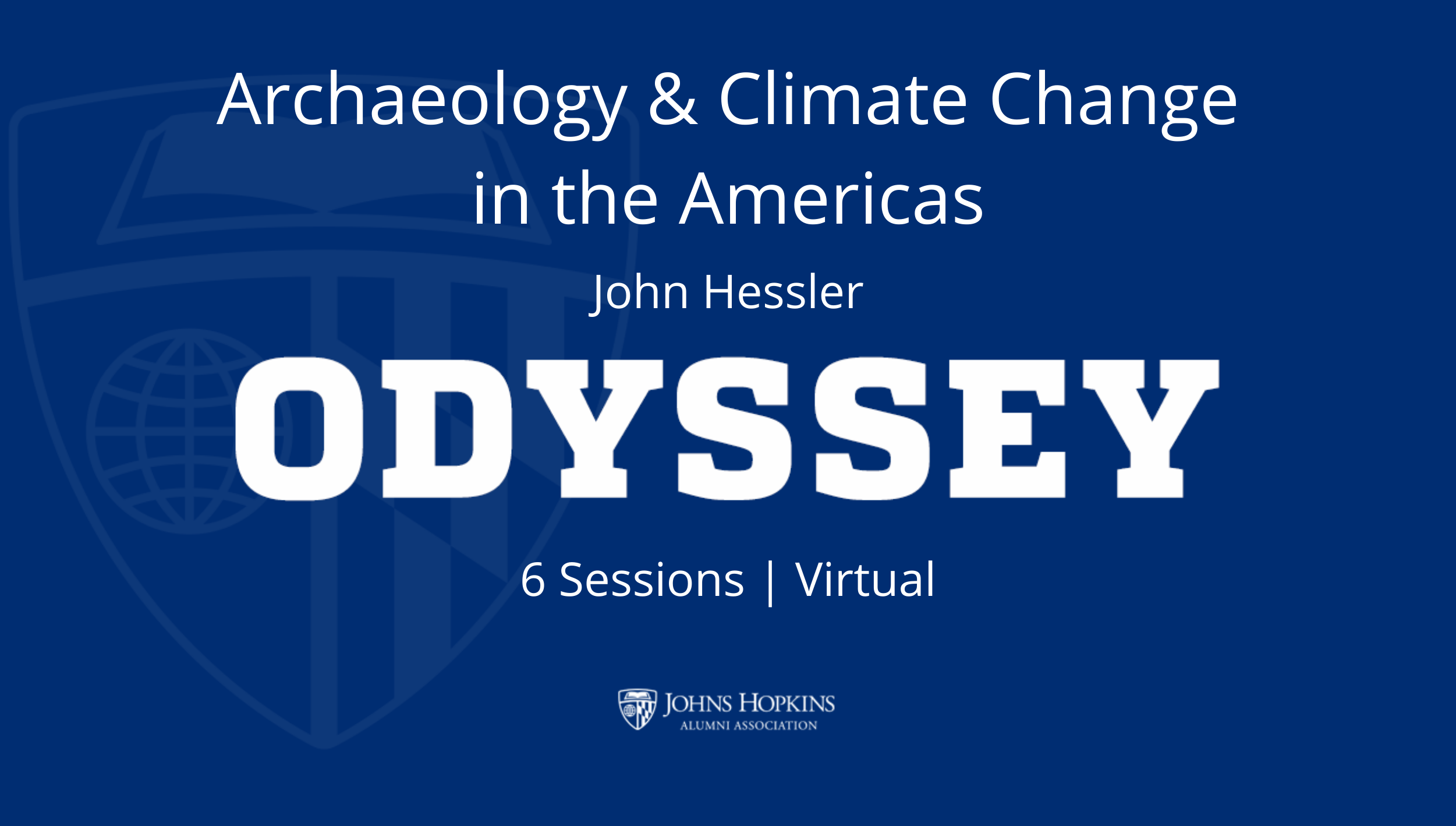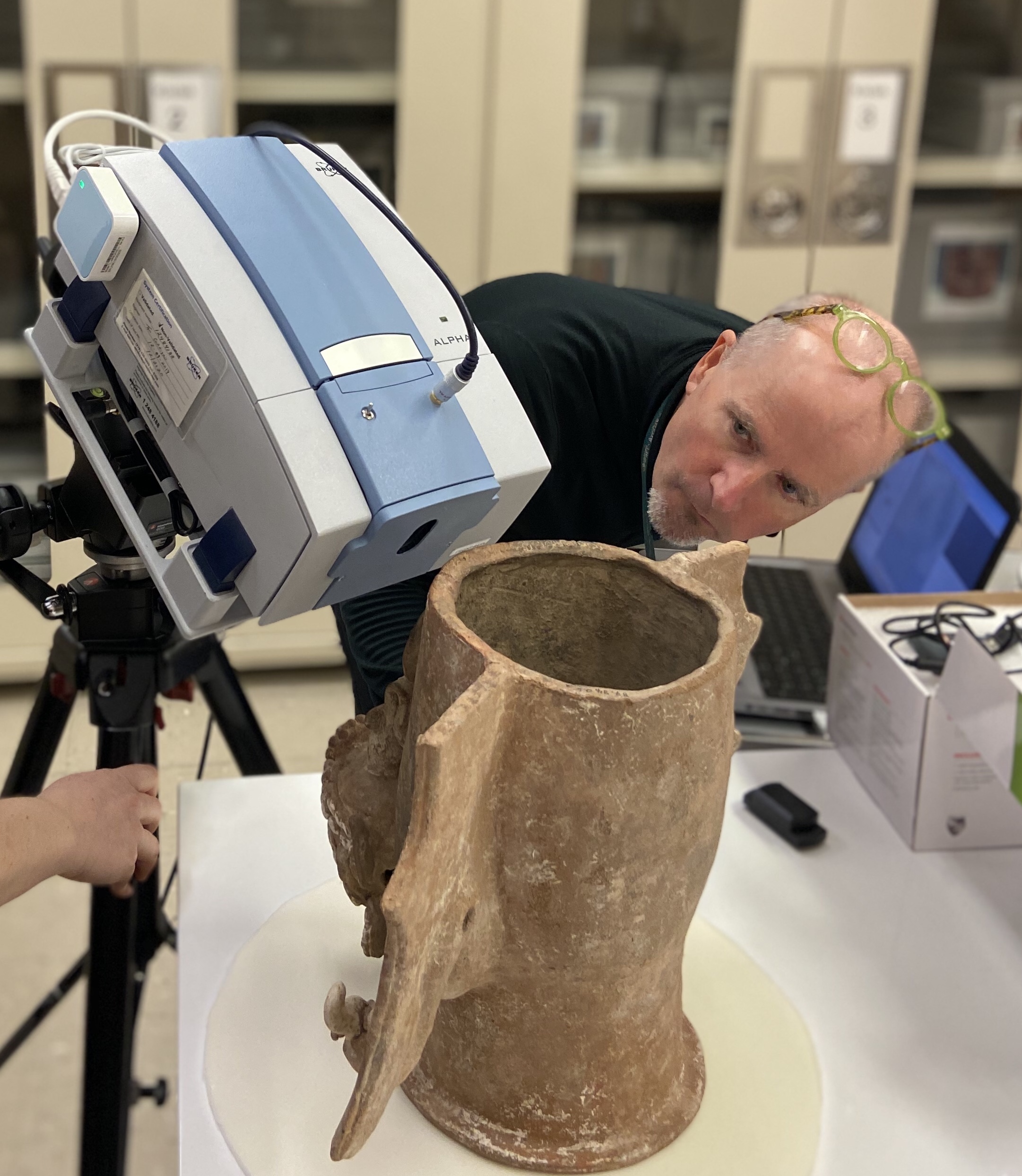Archaeology and Climate Change in the Americas

Brought to you by Odyssey
October 7, 2021 - November 11, 2021
Thursday, 6:30 PM ET (9 course hours)
This class will introduce students to the science of climate change through explorations of the archaeological remains of the great civilizations of the Americas. The rich archeological record left behind by the Olmec, the Maya, the Aztec and the Inca, have over the last few decades, given scholars great insights into how they used their environments and how in doing so, influenced the ecology of the Americas. The Maya in particular produced huge cities whose need for water and resources outpaced in many instances the ability of the environment to provide them. Students will explore the archaeological remains of these cultures from the early Americas through 3D models of objects, inscriptions and works of art and through readings aimed at building an understanding of the science of both past and present climate change.
Syllabus
Session 1: 10/7, Introduction to Climate Science and the Archaeology of the Americas
Session 2: 10/14, Maya Civilization and the Paleoecology of the Ancient Americas
Session 3: 10/21, Indigenous Perspectives on Environment and Climate amongst the ancient Maya, Nahua, and the Cahuilla.
Session 4: 10/28, What can the archaeological record of the disappearance of classic Maya cities tells us about climate change
Session 5: 11/4, Impact of climate change on the collapse of Lowland Maya Civilization
Session 6: 11/11, How does the archaeological record of the effects of climate change influence how we think about it today.
Supplemental Materials
Students will be provided with readings for the each class as attachments a week before the lecture associated with the reading as listed below:
Week 2: Twenty-first century approaches to ancient problems: Climate and Society by Jade A. d’Alpoim Guedes, Stefani A. Crabtree, R. Kyle Bocinsky and Timothy A. Kohler. Proc. Nat. Acad. Sci. 113(51) (2016) 14483-14491.
Week 3: Classic Period collapse of the Central Maya Lowlands: Insights about human–environment relationships for sustainability by B. L. Turner II, and Jeremy A. Sabloff PNAS 109(35) (2012) 13908-13914.
Week 4: Impacts of Climate Change on the Collapse of Lowland Maya Civilization by Peter M.J. Douglas, Arthur A. Demarest, Mark Brenner, and Marcello A. Canuto. Annual Review of Earth and Planetary Science 44 (2016) 613-45
Week 5: Drought, agricultural adaptation, and sociopolitical collapse in the Maya Lowlands by Peter M. J. Douglas, et. al, PNAS 112(18) (2015) 5607-5612.
Week 6: Quantification of drought during the collapse of the classic Maya civilization Nicholas P. Evans, et.al, Science 361 (2018) 498-501.
About the Instructor

When not climbing in the Alps, searching for rare plants in the desert, or mountain biking through some jungle, John Hessler is the curator of the Jay I. Kislak Collection of the Archaeology and History of the Early Americas at the Library of Congress, and a lecturer at the Rare Book School, at the University of Virginia, teaching the linguistics of the Mesoamerican Codex. He is the author of more than one hundred articles and books on archaeology and exploration, including the New York Times bestseller, MAP: Exploring the World, and his work has been featured in many media outlets including the New York Times, Washington Post, the BBC, CBS News and NPR’s All Things Considered. His most recent book, Collecting for a New World, examines the history of the archaeological collections at the Library of Congress, where he also writes the Excavating Archaeology Series for the blog, Worlds Revealed.
Tuition Remission and Refund Policies
Full-time JHU faculty/staff, their spouses or same-sex domestic partners, JHU retirees and their spouses or same-sex domestic partners are eligible for tuition remission. The tuition remission form is required. All tuition remission forms and details on eligibility can be found here and should be returned to odyssey@jhu.edu.
After registration, tuition remission eligibility will be confirmed by the Odyssey registrar. If eligibility cannot be confirmed, you will be required to pay full tuition for the course. Under the terms of the University’s remission program, Hopkins employees must withdraw in writing at least five working days before the first class to receive a 100% refund. No partial refunds are given to JHU employees and affiliates.
Please visit the registration and policies page for more information.
While participating in on-campus events and meetings, participants must follow all public health guidelines required by Johns Hopkins University and Medicine at the time of the event. If you are not fully vaccinated, we require that you wear a face covering during your visit to campus, even when it is no longer required for those who are vaccinated.
While participating in off-campus events and meetings sponsored by the JHAA/JHM/JHHS participants must follow all public health guidelines mandated by the local jurisdiction and venue at the time of the event, including vaccination and masking and distancing guidance. Johns Hopkins strongly suggests that attendees who join in person be fully vaccinated.
